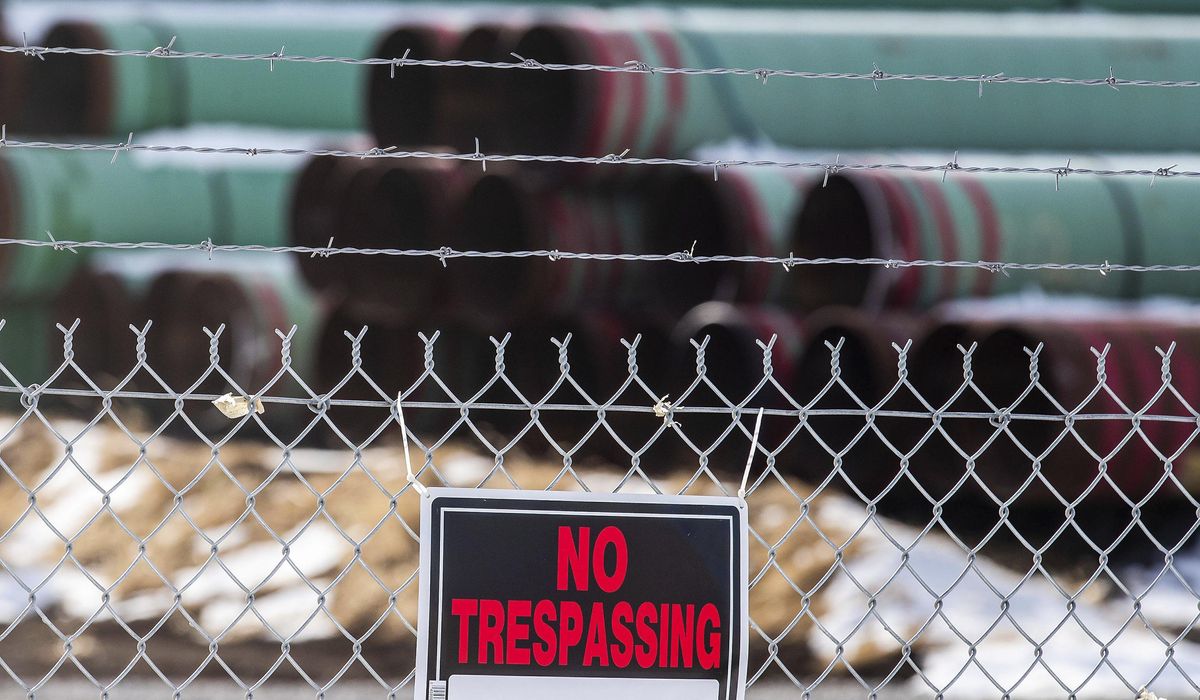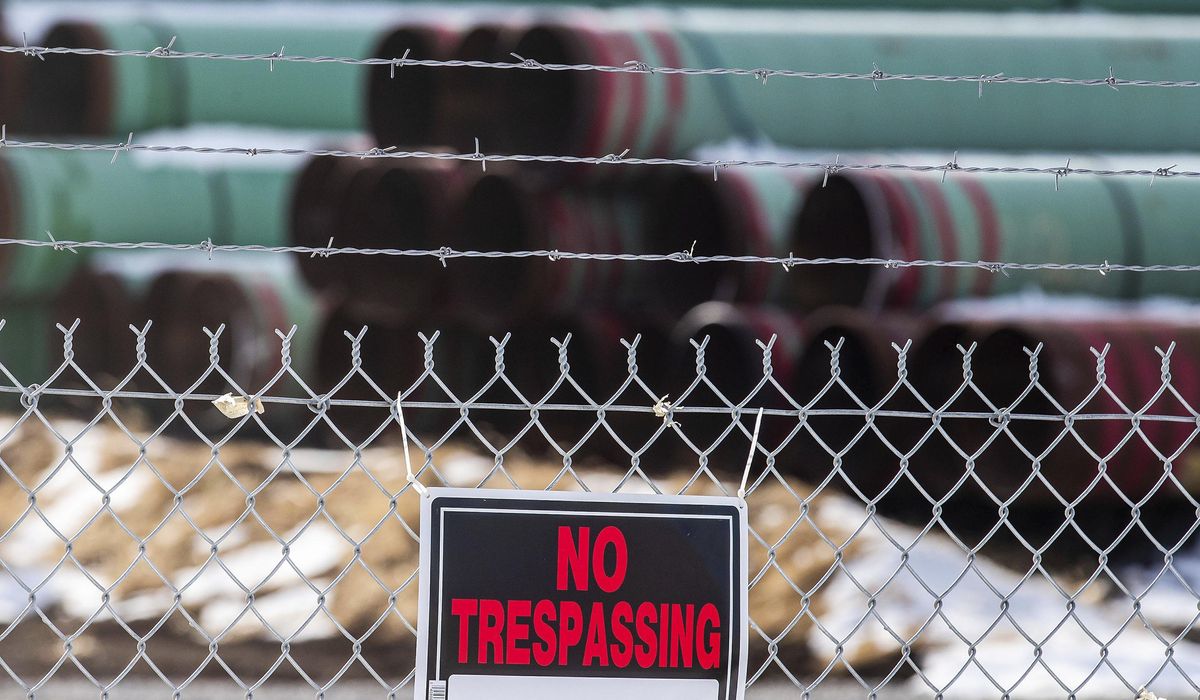
President Biden’s decision to nix the Keystone XL pipeline has come under renewed fire as the administration struggles with rising consumer frustration over skyrocketing gas prices.
Sen. Joe Manchin III, West Virginia Democrat, made another plea for Mr. Biden to reverse his Jan. 20 executive order revoking the $8 billion pipeline expansion after the president announced Tuesday he would release 50 million barrels from the Strategic Petroleum Reserve.
Meanwhile, Republicans were quick to connect the dots between the scuttled fossil-fuel project and the pain at the pump.
“As Joe Biden cries crocodile tears over the cost of gas crushing working-class Americans, remember his first action as president: canceling the Keystone pipeline,” tweeted Sen. Tom Cotton, Arkansas Republican. “Joe Biden is responsible for this mess.”
The wave of criticism came a day after TC Energy, the Canadian firm behind the Keystone XL project, moved ahead with its claim to recover $15 billion in economic damages over the permit revocation.
The energy company announced Monday that it has filed a formal request for arbitration under the North American Free Trade Agreement Chapter 11 investor-state dispute settlement provisions, “which allows companies to seek compensation for lost investment.”
In June, TC Energy said it had abandoned the Keystone XL project.
Cancelling the presidential permit issued by predecessor Donald Trump was one of Biden’s first decisions when he took office in January. #TCEnergy #KeystoneXL #KXL #Pipeline #ABGovhttps://t.co/BYAqeRFICb
— 770 CHQR Global News Radio (@770CHQR) November 24, 2021
“As a public company, TC Energy has a responsibility to our shareholders to seek recovery of the losses incurred due to the permit revocation, which resulted in the termination of the project,” TC Energy said. “We will not comment further and will follow the process as set out.”
Erin LeBlanc, a lecturer at the Smith School of Business in Kingston, Ontario, called TC Energy’s $15 billion dispute “the largest claim for a Canadian organization against the U.S. government,” according to the CBC.
Mr. Biden’s decision to tap into the Strategic Petroleum Reserve came after gas prices reached a seven-year high last month at $3.26 per gallon. The national average was $3.40 per gallon as of Wednesday, according to GasBuddy, a website and app that reports on fuel prices.
Mr. Manchin described the president’s move as “an important policy Band-Aid for rising gas prices” while urging the president to restart Keystone XL.
“I continue to call on President Biden to responsibly increase energy production here at home and to reverse course to allow the Keystone XL pipeline to be built which would have provided our country with up to 900,000 barrels of oil per day from Canada, one of our closest allies,” said Mr. Manchin, who chairs the Senate Energy and Natural Resources Committee, in a statement.
“To be clear, this is about American energy independence and the fact that hard working Americans should not depend on foreign actors, like OPEC+, for our energy security and instead focus on the real challenges facing our country’s future,” the senator said, referring to the Organization of the Petroleum Exporting Countries.
His concerns were echoed by former Trump White House press secretary Sean Spicer, who tweeted, “Why are we tapping the strategic petroleum reserve when [we] could just keep Keystone XL online and create US jobs in the process — common sense craziness?”
Rep. Tom Tiffany, Wisconsin Republican, tweeted Tuesday that “Biden’s decision to cancel the Keystone XL pipeline killed thousands of jobs, risked our energy independence and caused gas and home heating costs to rise.”
The proposed 1,210-mile pipeline expansion approved in 2017 by then-President Trump was expected to deliver oil from the Alberta tar sands to Steele City, Nebraska, before connecting with existing pipelines to refineries along the Gulf Coast in Texas.
Climate groups cheered Mr. Biden’s Day One decision to nix the pipeline project, but the president has since come under fire for his moves cracking down on the U.S. oil-and-gas industry as fuel costs climb.
The Biden administration has also called on OPEC and allied Russian producers to pump more oil, but so far they have rebuffed requests to deviate from plans to gradually increase production.
Last week, White House press secretary Jen Psaki defended the decision to scrap Keystone XL under questioning from reporters, saying that the pipeline extension was only about 8% completed when the permit was revoked.
“Suggesting that changing that would lower the price of gas, I don’t know that that makes substantive sense,” she said.
Ms. Psaki added that “we looked at the environmental impacts and weighed them with the economic impacts, and the decision was certainly made.”








